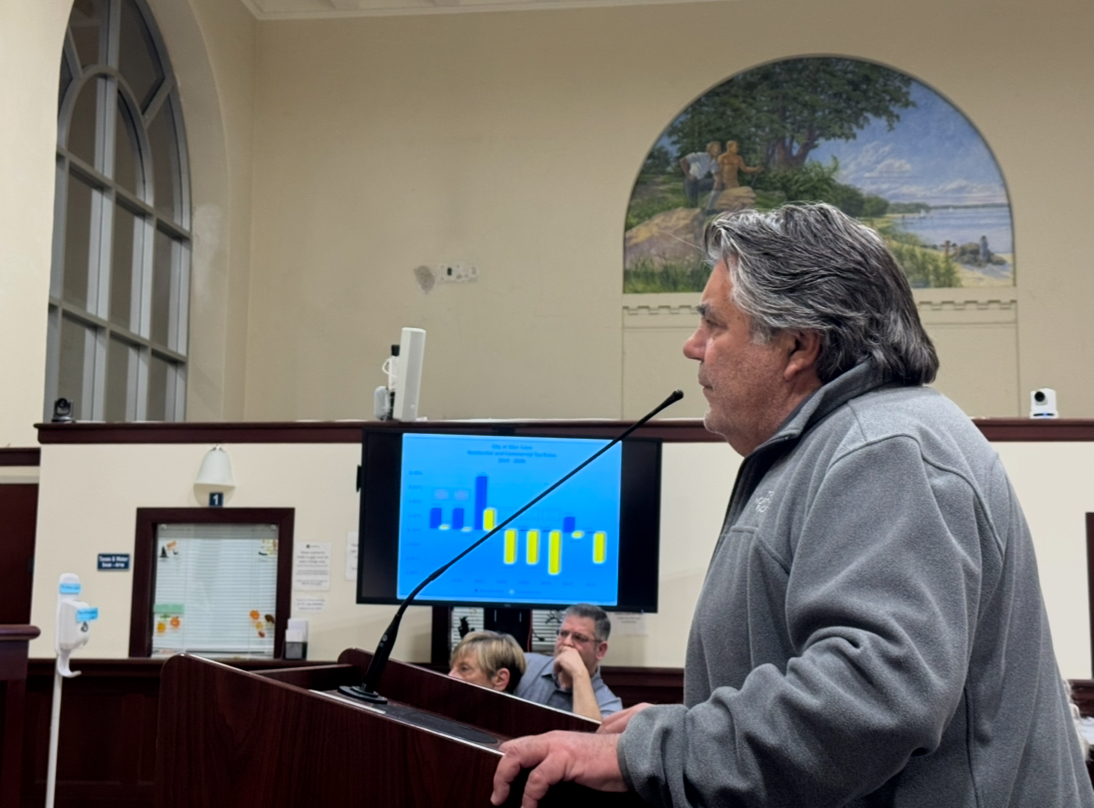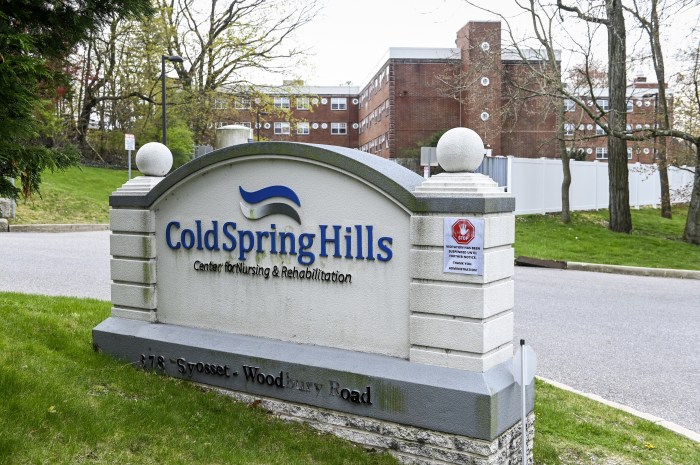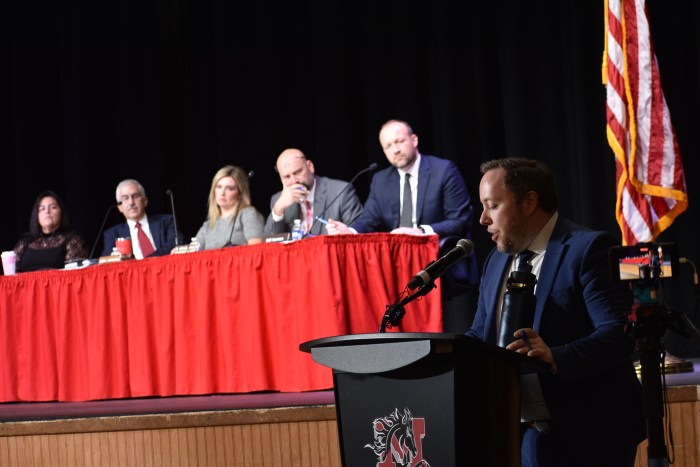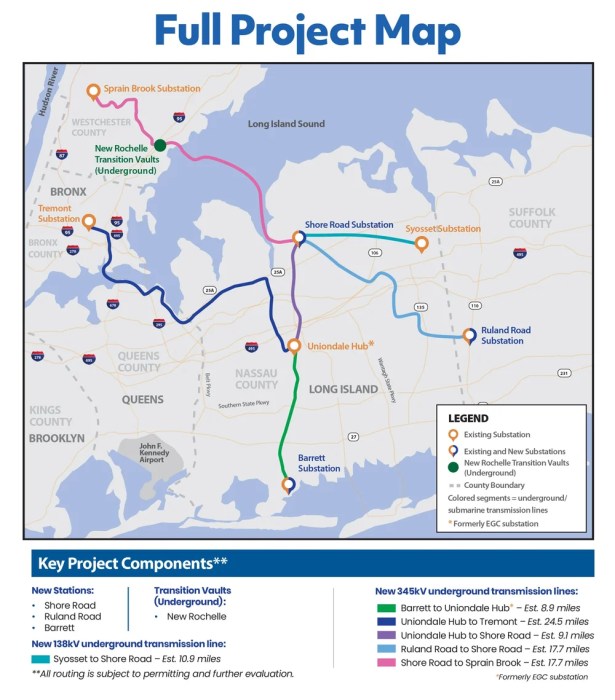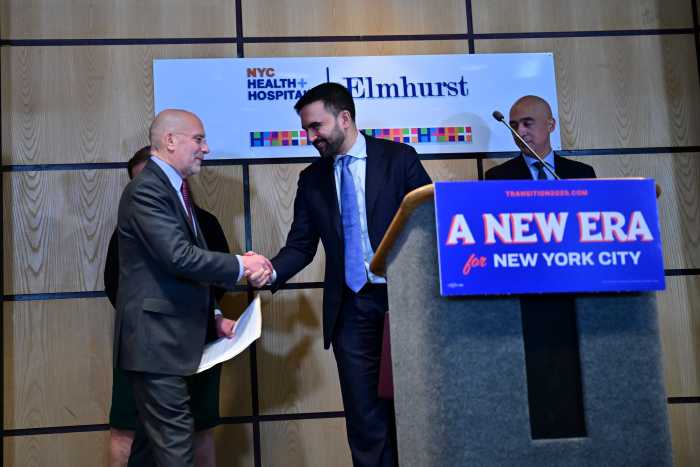The City of Glen Cove’s $69.3 million budget for 2026 advanced even though council members failed to pass the fiscal plan on Tuesday, Oct. 14, as the council broke with its customary practice of conducting two public hearings before casting votes, opting instead for a single hearing.
The decision to vote after a single hearing raised heated objections from Democratic council members.
The budget received three votes in favor, two against, and one abstention, with Mayor Pam Panzenbeck prohibited from participating under the city charter.
City Attorney Tip Henderson said four votes are required to pass the budget. He said that according to the city’s charter, which outlines the city’s structure, “in the event that the budget does not pass, it is automatically adopted” on the fourth Tuesday of the month.
Republican Council Members Grady Farnan, Mike Ktistakis, and Kevin Maccarone voted in favor of the budget; Council Members John Zozzaro and Marsha Silverman, both Democrats, voted against it, and Democrat Council Member Daniell Fugazy Scagliola abstained from the vote.
The city typically holds two public hearings on the budget before voting on it. After the first public hearing ended on Tuesday, Farnan moved to close the public hearing permanently and made a motion to put the budget on the agenda for the council to vote on it. His motions both passed with four votes in favor.
Some council members expressed frustration that the board voted to close the public hearing after one meeting, as it is standard to keep the hearing open for two council meetings.
“I’ve never seen this happen before,” Fugazy Scagliola said. She said that two public hearings on the budget have been a city standard for as long as she can remember.
“We’re pulling the wool over the eyes of our residents… It’s a complete farce, and everyone who voted for this is ridiculous,” Zozzaro said.
Others disagreed that it was wrong to close the hearing.
“It is our prerogative to close out a public hearing,” Farnan said.
The 2026 budget totals $69.3 million, representing an increase of almost $4 million from last year. Taxes will not be increased, and the levy will be $33.3 million.
Last year, the Glen Cove council approved a $65.4 million budget, which included a tax increase of almost 2%. Prior to last year, city taxes had not been raised for three consecutive years.
“We are constantly looking for new revenue streams to offset and sustain the rising costs of operating the city and at the same time, stabilizing your taxes,” Panzenbeck said.
Panzenbeck said the city approximates that the sales tax preemption, which was passed on July 22, will generate over $3 million in revenue. The enactment allows the city to retain half of its 3% sales tax, which is currently shared with Nassau County, but it will eliminate the county property tax rebate given to homeowners.
During the public hearing, resident John Perrone, who is running for the city council this November, inquired about how the preemption would impact county taxes. Panzenbeck said the county told her the effect on Glen Covers’ taxes would be “de minimis.”
“This is not irrevocable,” Panzenbeck said. She said that if the preemption does not work in the city’s favor, they can revert to the previous sales tax method.
Panzenbeck noted that in 2025, the city eliminated its operating deficit for the first time in seven years, now accruing an approximate $87,000 surplus. She stated that the state comptroller indicated the city is not under fiscal stress, and the city’s Moody’s credit rating was upgraded to a Baa1, the municipality’s highest rating in 20 years.
Farnan asked Panzenbeck if she expected the budget to change in the upcoming weeks, and she said she did not.
Farnan moved to close the public hearing on the matter, which was passed with a vote of four. He then moved to add the budget to the meeting’s resolutions for a vote, which was passed with four votes in favor.
Silverman, Zozzaro, and Fugazy Scagliola voted against both motions.
“I don’t understand why there would be a need to cut off public comment,” said Silverman, a Democrat who is running for mayor this November.
“I am always an advocate of giving the public an opportunity to speak, so I don’t know why we would cut off the public’s opportunity to talk about this budget,” Fugazy Scagliola said.
Silverman moved to table the budget’s resolution, but it was denied. She said she had questions about the budget that have not yet been answered.
Panzenbeck said the budget would not change by the end of the month, which is the deadline for the council to vote on it.
“The budget never really changes. But that’s not what’s at issue here… It’s about people taking part in the process and having a say in what’s happening here,” Fugazy Scagliola said.
“The way that you are operating this city is irresponsible and not respectful of the community and the board that was elected to represent this community,” Silverman said.
Other council members touted not increasing taxes.
“Another 0% tax increase… It’s a no-brainer for us to just move forward and keep this city in the path that it’s going,” Ktistakis said.
During public comment, resident Daniel Aleva said closing the budget seemed “premature,” especially because he wasn’t aware it would be discussed at the council.
The board also approved a lease extension for Cove Sports Academy, having previously tabled the resolution in August. The resolution, passed with five votes, extends the lease for Cove Sports, a child and adult multi-sport facility located in a city-owned building at 27 Cedar Swamp Road.
City officials said in August that the building requires approximately $200,000 worth of repairs, which the business is willing to cover under a lease extension agreement. At the August meeting, residents and council members questioned the leasing process, stating that the rules are inconsistent throughout the city.
“We need to come up with a process that makes better sense, because we clearly do not have one,” Fugazy Scagliola said.
Maccarone abstained from the vote after resident Nancy Hawkins raised questions about his law firm’s involvement in the contract, and Panzenbeck stated that the mayor does not have the authority to vote on lease agreements.
Editor’s note: This story originally stated that the $69.3 million proposed budget was approved on Tuesday, Oct. 14, under a city charter provision that stipulates the budget is approved automatically if the council fails to obtain at least four votes in its favor. The charter states the budget is automatically approved on the fourth Tuesday of October, which this year will be Tuesday, Oct. 28.




